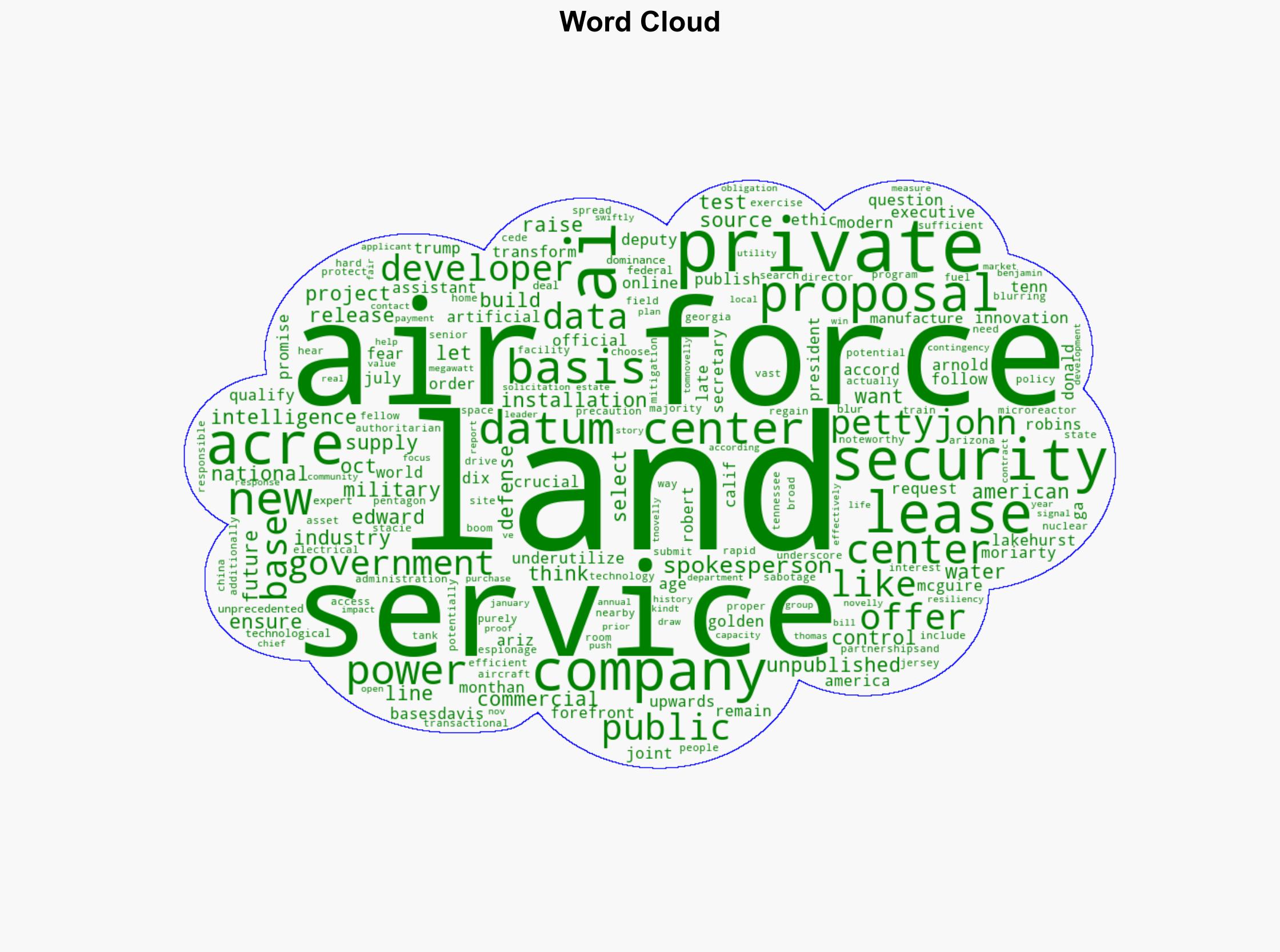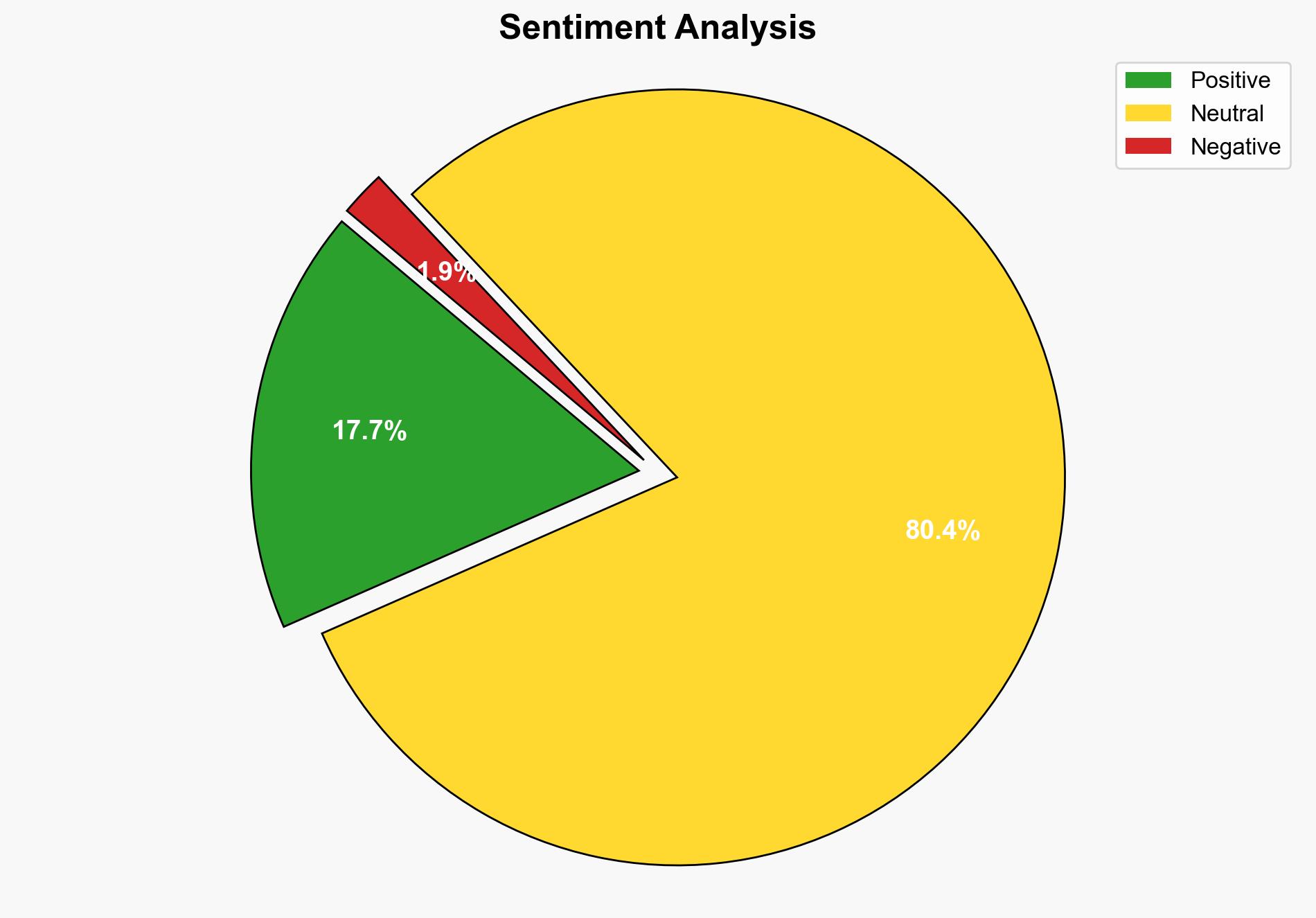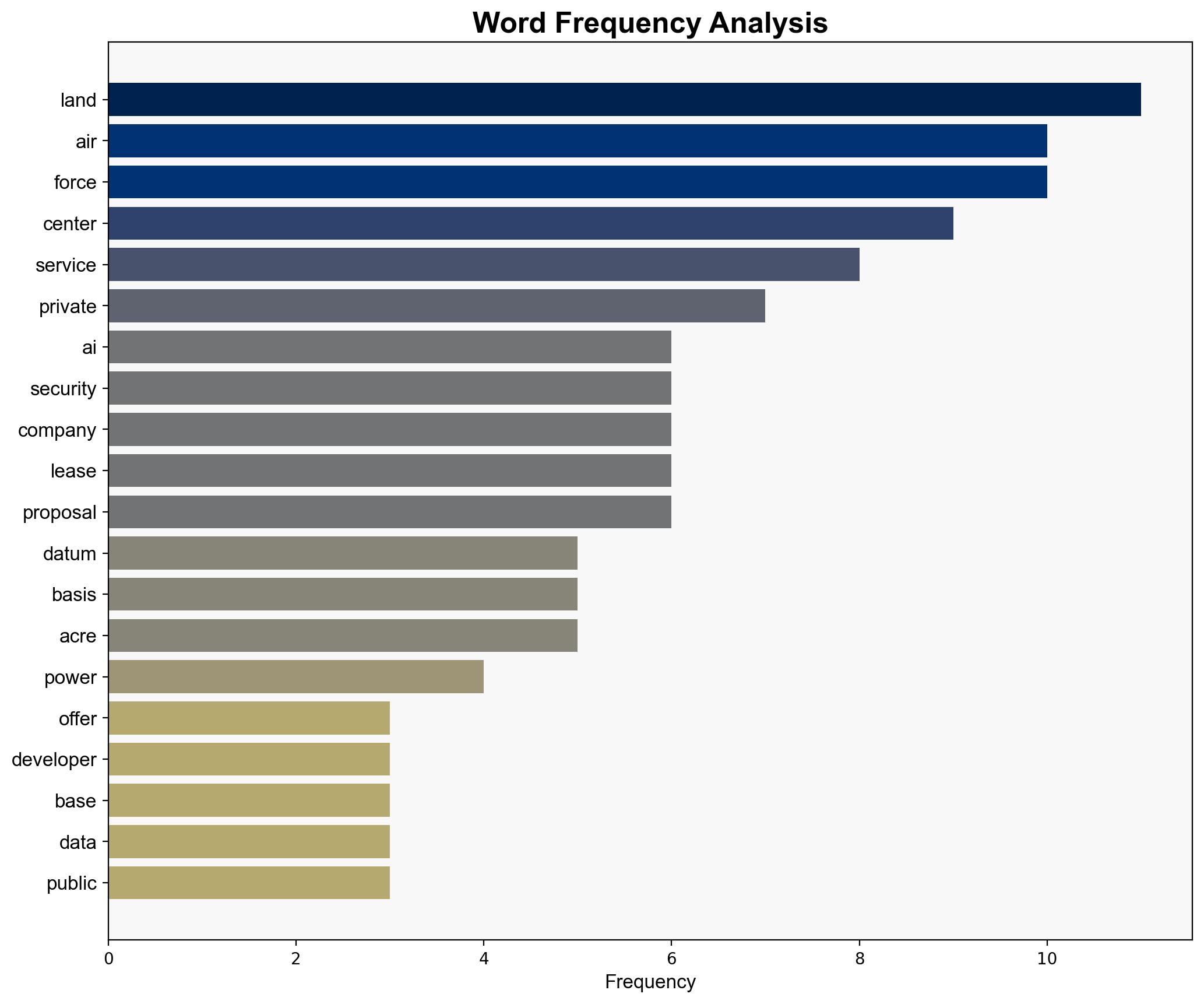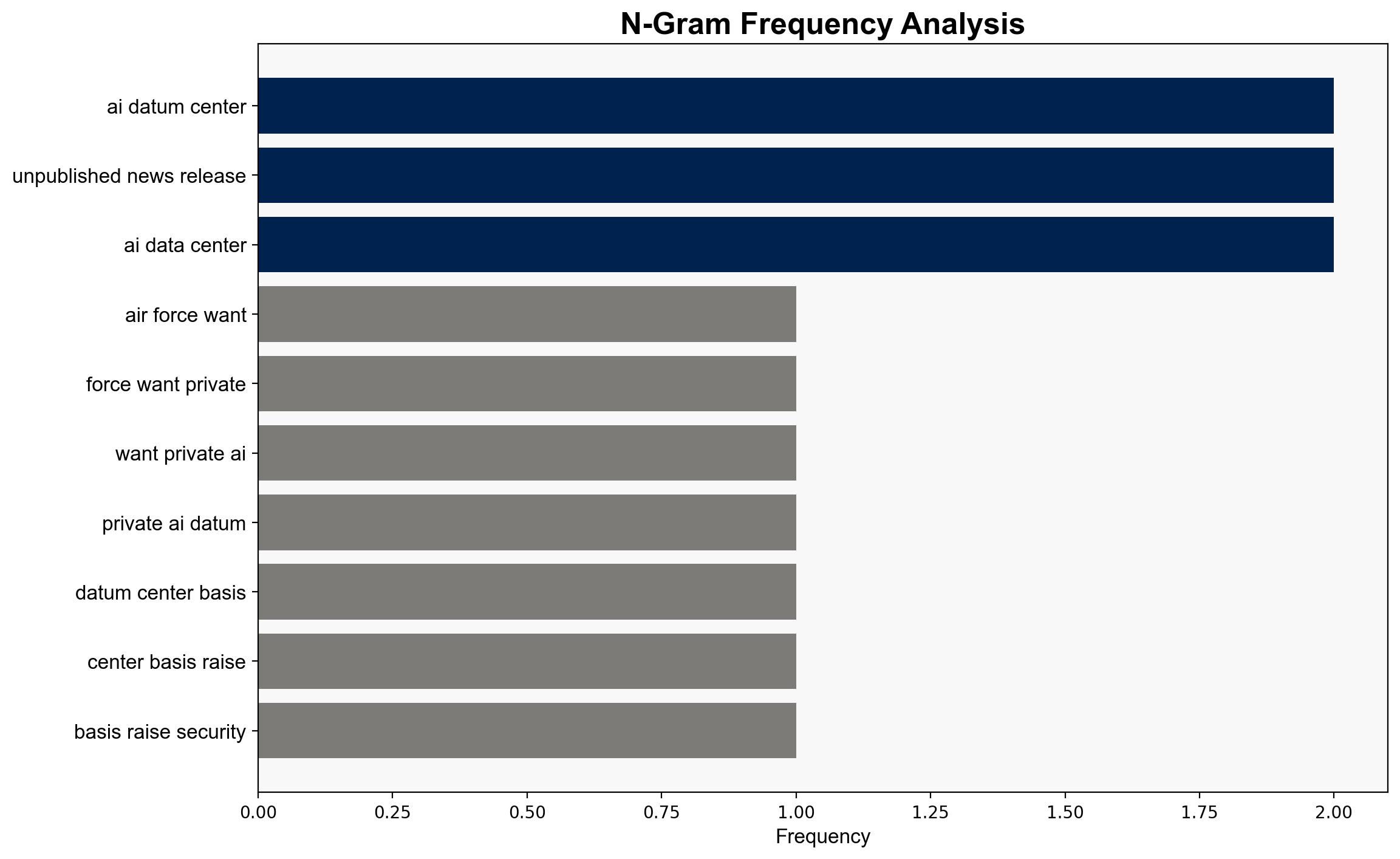The Air Force wants to put private AI data centers on its bases raising security land-use fears – Defense One
Published on: 2025-10-24
Intelligence Report: The Air Force wants to put private AI data centers on its bases raising security land-use fears – Defense One
1. BLUF (Bottom Line Up Front)
The strategic judgment is that the proposal to allow private AI data centers on Air Force bases presents significant security risks, particularly concerning espionage and sabotage. The hypothesis that these risks outweigh the benefits of technological advancement and economic gain is better supported. Confidence level: Moderate. Recommended action: Conduct a comprehensive risk assessment and establish stringent security protocols before proceeding.
2. Competing Hypotheses
1. **Hypothesis A**: The integration of private AI data centers on Air Force bases will enhance technological capabilities and economic growth, outweighing potential security risks. This hypothesis assumes that security measures will be sufficient to mitigate risks.
2. **Hypothesis B**: The security risks associated with allowing private companies to operate AI data centers on military bases, such as espionage and sabotage, outweigh the potential benefits. This hypothesis is supported by concerns over blurred lines between public and private sectors and potential loss of control over military land.
3. Key Assumptions and Red Flags
– **Assumptions**:
– Hypothesis A assumes effective implementation of security measures and that private companies will adhere to strict protocols.
– Hypothesis B assumes that private companies may not fully comply with security protocols and that the risk of espionage is high.
– **Red Flags**:
– Lack of detailed security measures in the proposal.
– Potential for private companies to prioritize commercial interests over national security.
– Insufficient oversight mechanisms to ensure compliance with security protocols.
4. Implications and Strategic Risks
– **Economic Implications**: Potential economic benefits from technological advancements and increased innovation.
– **Cybersecurity Risks**: Increased vulnerability to cyber-attacks and espionage.
– **Geopolitical Risks**: Potential for adversaries to exploit blurred lines between public and private sectors.
– **Psychological Impact**: Erosion of trust in military’s ability to safeguard national security.
5. Recommendations and Outlook
- Conduct a comprehensive risk assessment focusing on cybersecurity and espionage threats.
- Develop stringent security protocols and oversight mechanisms for private companies operating on military bases.
- Scenario Projections:
- Best Case: Successful integration with enhanced security measures leading to technological and economic growth.
- Worst Case: Security breaches leading to significant national security threats.
- Most Likely: Initial challenges in security implementation with gradual improvement over time.
6. Key Individuals and Entities
– Robert Moriarty
– Stacie Pettyjohn
– Benjamin Kindt
7. Thematic Tags
national security threats, cybersecurity, counter-terrorism, regional focus




